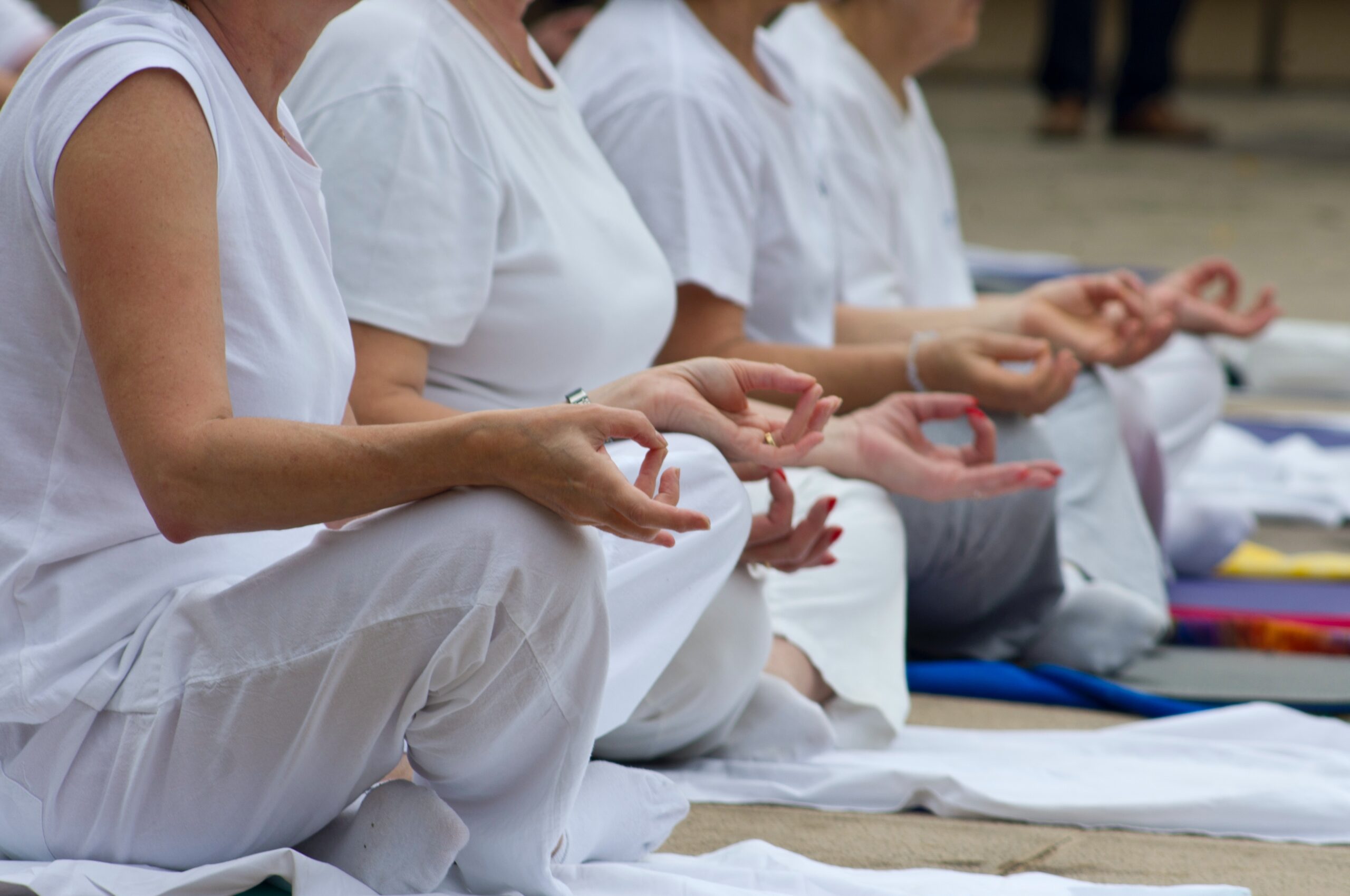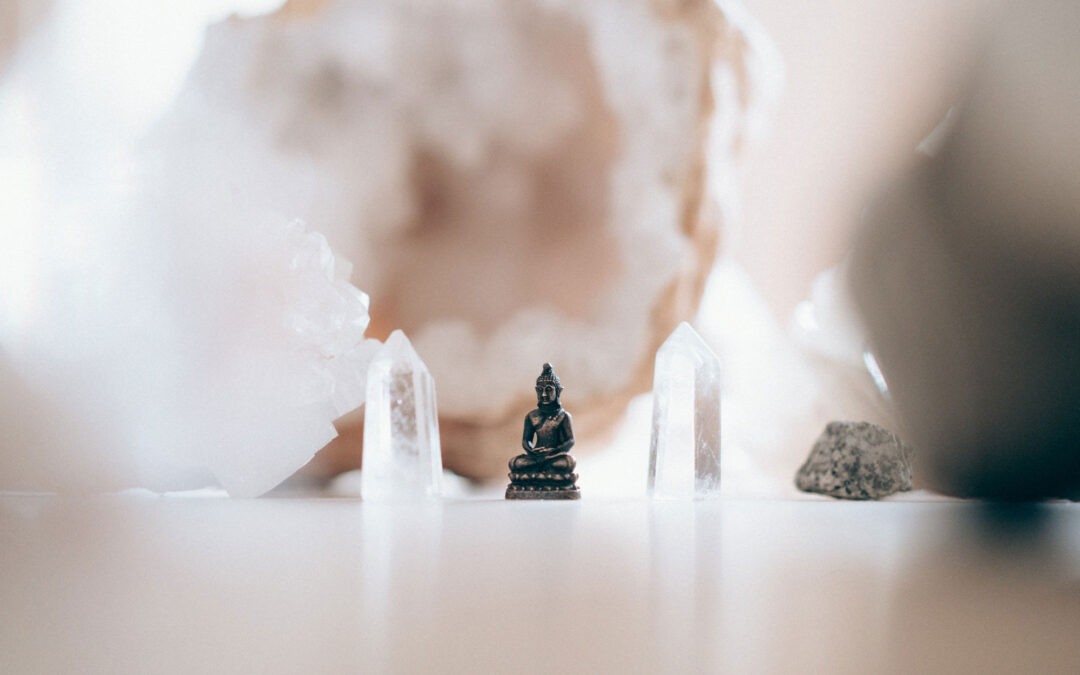Modern Day Stress Explained and Decoded
Insight Into Your Overwhelm
When I was in my yoga teacher training in 2013, we learned the astounding statistic that the amount of information that a person living in the late 1800’s was exposed to in their entire lifetime is equal to the amount of information that a person in today’s 21st century is exposed to in one single day! The Age of Information began in the 1970’s with the introduction of the personal computer and successive technological advancements that have been introduced since then have allowed us the ability to transfer information rapidly and freely. A handwritten letter that once took weeks to receive has since been replaced by an email that can be read in just seconds after sending it. Over time, we’ve become accustomed to the speed of things being faster and we generally equate speed with progress. But what effect has this had on our sense of peace? What has the consequence of this been to our brains, our bodies, our hearts?
The Impact of The Age of Information
By and large when I catch up with someone on the phone these days, their first response to the question, ‘How are you?’ is usually, ‘Good, but really busy.” There are still the same 24 hours in a day as there were back in the 1800’s, the difference today is the exponential speed in the creation of information. This ultimately makes us feel like we can’t keep up — which is true because although our nervous systems have naturally evolved over time, there’s still such a deluge of new information available in the world every day, it’s impossible to consume it at the same rate at which it is being created. In essence, this creates a sense of ‘busyness’ or overwhelm.
Between our emails, texts, other messaging services (like WhatsApp, Voxer or Telegram), social media profiles, and radio and news outlets it’s a very noisy world. Every brand, influencer and company is fighting for you to listen to, read or see the information they are sharing. In 2018, Forbes published an article stating, “There are 2.5 quintillion bytes of data created each day at our current pace, but that pace is only accelerating with the growth of the Internet of Things. [From 2016-2018] 90 percent of the data in the world was generated.”
The Crusade For a Balanced Life
The average person these days moves from performing a task to taking a meeting to answering an email to making a phone call to sending a text message to reading a notification on their phone. Biologically this causes our brain to fire different parts at random causing brain incoherence. The more outlets there are requiring your attention, the more narrow focus you have which drives the brain into high beta brain wave states. As a result the more stressed you feel because your nervous system is being forced to compute information from a multitude of sources. And when this happens, the greater you (as a whole) is also out of coherence. This triggers arousal hormones that heighten the senses and activate the primitive nervous system to go into fight, fight or hide mode. If this narrow focus goes on for too long, it turns into chronic stress which can lead to a poor concentration, anxiety, panic attacks and more serious health problems.
Simple Solutions To Get Into the Flow State
Practices, like meditation, that expand your focus from something material or tangible to something more broad and sensory, slows down the analytical mind. Biologically then, brain waves lengthen and move from high beta waves into alpha which is a more creative state, often referred to as ‘being in flow.’ It’s in the alpha state that new ideas and solutions surface and because the brain has now shifted into more coherent firing, the two hemispheres of the brain work together in a more harmonious way.
Understanding how to condition your nervous system is also key to being more responsive in your decision making rather than reactionary. To understand this, consider that systems of all kinds have capacities but whereas computers or cell phones have memory and storage limits, our human nervous systems are malleable, meaning that they can start out limited but be trained to handle more. Because there are three types of stress – physical, chemical, and emotional – we can do things like utilize challenging physical exercises to strain our muscles and push our mental boundaries and that training expands our nervous systems volumes for handling other types of pressures. Kundalini yoga often guides the practitioner to do demanding physical movements followed by periods of rest, which if practiced regularly, trains the nervous system to stretch and expand its potentiality and optimize the ability to regulate back and forth between a sympathetic (heightened state) to a parasympathetic (relaxed state).
Take Accountability For Your Consumption
We can also take accountability for what we’re consuming and manage the barrage of requests that compete for our attention. This can be best understood by the idea in yoga of Prana versus Apana, which you can distill down to the idea ‘what goes in, must come out.’
Prana is everything that we take into the body. It’s the food we eat, the things we drink, the air we breathe but it’s also everything that we’re mentally consuming – all of the information that our brains are processing.
The opposite is Apana – the elimination of your food and drink, the CO2 from your lungs when you exhale, the skincare products that absorb through your skin that must be processed by your liver, and the mental processes of your brain/psyche related to everything you are mentally consuming.
Therefore the questions related to ‘What is contributing to your stress,’ become: what is the quality of the food you’re eating? Are you consuming alcohol and if so, how much and how frequently? Are you living in a metropolitan area with pollution? How much time are you spending in a focused state, staring at a computer, tablet or phone screen? What types of profiles do you follow on social media? What TV shows are you watching, are they violent, vulgar or dramatic in nature?
Your being, and all of its complex systems, have to process everything and just like you can become physically constipated, your brain can experience a backup of sorts too.
Five Things You Can Do To Increase Your Peace
1. Get honest about your screentime. Foveal view is when you’re one-pointed tasking and looking at something very fixed (like when an animal is in a state of hunting) whereas a broader view utilizes your peripheral vision. If you’ve been looking at a screen for hours, it would support your system to get up and go for a walk or have lunch outside of the office, away from your desk, in order to utilize your peripheral vision.
2. Minimize notifications on your phone. It would behoove you to think about which apps on your phone you honestly need notifications programmed and turned on. You might decide that your social media alerts are just a distraction (READ: part of the unnecessary noise) and realize that the same nonessential messages will still be in your Instagram inbox when you decide to login and scroll.
3. Re-evaluate what you’re consuming on social media, Netflix, Amazon Prime, Hulu or what radio stations or news outlets to which you are listening. It might be time to unfollow some profiles or stop watching certain shows or movies. Observe how you feel in your physical and emotional bodies after watching or listening to content. If you feel angry, anxious or depressed, it’s time to re-think if the content is worth the effect it’s having on you.
4. Take back the night by folding in relaxing and soothing practices before bed as a means to support deeper sleep. Reducing screen time one hour before bed is always a good idea. Taking a bath or shower, massaging essential oils like lavender into the bottoms of your feet or reading a real paper book can support drowsiness.
5. Set the tone for your day each morning by following your bliss. Create sacred space and time for just you in the first 30-60 minutes upon waking up, prior to adhering to external responsibilities. Grant yourself ‘me time’ by journaling, going for a walk outside with the dog, practicing yoga, meditating or spend time playing with your kids before tending to work. This may mean adjusting your bedtime in order to accommodate waking up 30-60 minutes earlier. You won’t regret it!
Ultimately, when you establish ongoing, healthy patterns, you will find it easier to determine what truly deserves your attention and what is just unnecessary commotion.
To try out the experience of taking your brain waves from beta into alpha, check out my free 15 minute Guided Meditation to Experience the Expanded Self in my Community Resources for Wellbeing package.
If you’re in need of support in creating a more balanced lifestyle and learning supportive habits, book a session with me.





